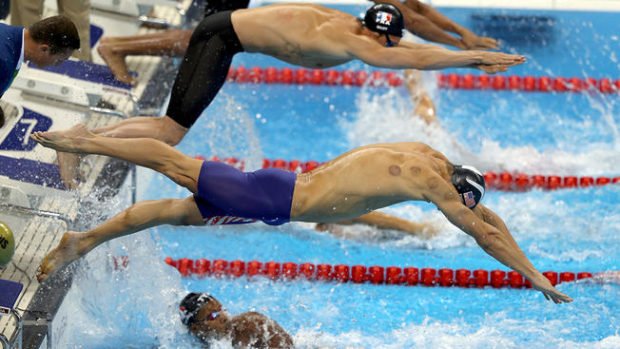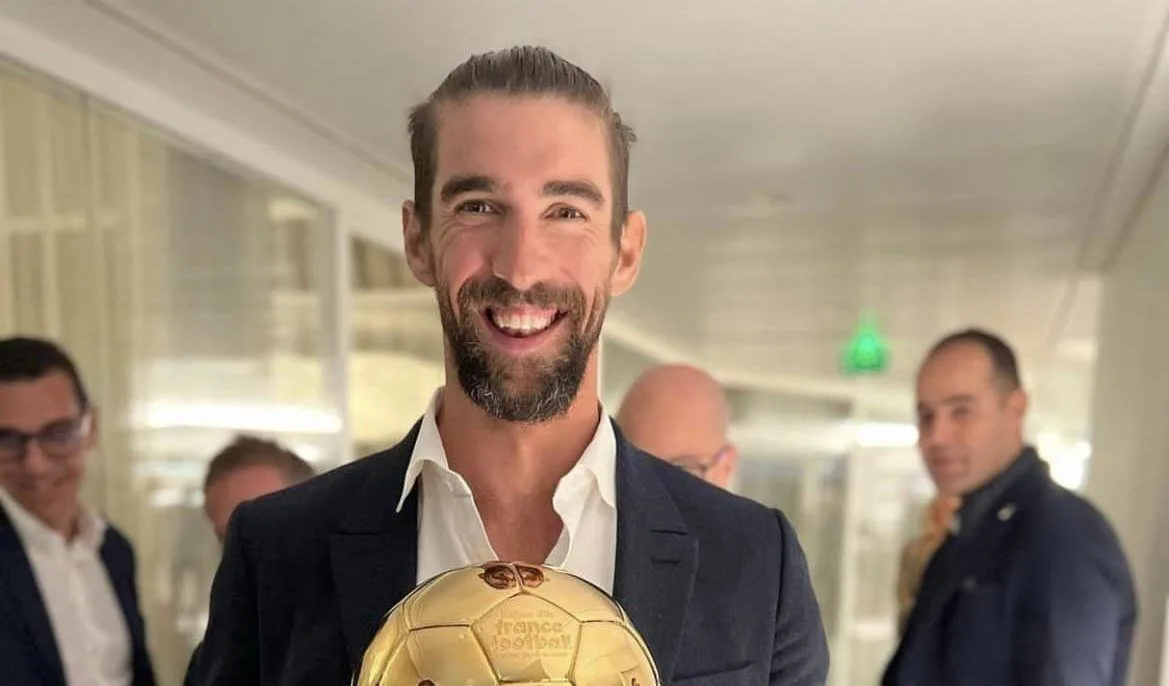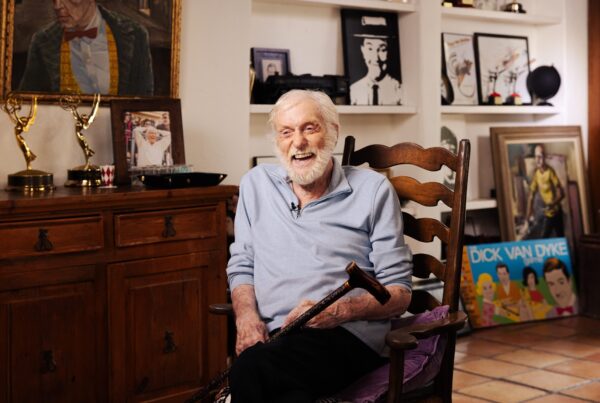Michael Phelps, Olympic champion swimmer and 28-time medalist, is encouraging us to prioritize our mental health. With 56% of American adults experiencing mental health issues not seeking treatment, Phelps’s goal is to spread awareness about mental health, by sharing his own struggles and encouraging others to seek help.
In 2004, the American star aquatic athlete won six gold and two bronze medals at the Athens Olympics, but once the event ended, he felt “post-Olympic Depression”. This led to years of living with anxiety and suicidal thoughts. He went through another period of depression following his success at the Beijing Olympic Games in 2008.
Michael Phelps on Seeking Help
Phelps’ depression continued to come in waves. Only in 2014, after receiving his second DUI, Phelps forced himself to get help for his mental well-being, something he said saved his life.
“That was when I was finally able to see that this is who I am and it’s a part of me and it’s not going to go away. So, I need to learn more about it. I need to learn why I work, how I work, why I am how I am.” he explained
It starts by admitting you need help
The Olympic champion admitted publicly that, “It was a very difficult thing to do because I didn’t really know how to do it or what to do.”
This admission sheds light on the stigma behind admitting to needing help, especially among men. In fact, a study found that out of 77% of men who participated, 40% had never spoken to anyone about their mental health or asked for help. 29% of them stated this is because they were “too embarrassed”, and the other 20% related it to the negative stigma related to asking for help.
“There are so many people that are suffering… in similar ways that I am, so really being able to teach and pass along (the) knowledge that I found… (is) something that’s so important.”
This is something that he aims to do through his “Start From The Top” campaign.

Image Credit: NBC News
“Start From The Top”
The “Start from the Top” campaign with Talkspace encourages individuals to incorporate mental healthcare into their new year’s resolutions, emphasizing the mind-body connection. This campaign focuses on five clinically-backed ways to improve mental well-being, namely:
Sleep
Chronic sleep deprivation and poor sleep patterns can put us at risk for developing depression and heart conditions. In many cases, insomnia can be a symptom of a mental health condition. On the other hand, physicians now acknowledge that insomnia contributes to the onset and worsening of mental health conditions. Such as depression, anxiety, and suicidal ideation.
Phelps’s goal: He focuses on getting seven and a half to eight hours of sleep each night of sleep. According to the National Sleep Foundation, this is the advised amount of sleep healthy adults need per night.
Move
According to Gina Moffa, LCSW, a psychotherapist, “outside of releasing endorphins, movement can provide a mindfulness aspect to it that reconnects us with our bodies and helps us to allow emotions, such as anxiety to move through our bodies instead of staying stagnant.” The current recommendation for movement is to engage in 30 minutes at least 5 days a week. This has been shown to help prevent depression and anxiety.
Phelps’s goal: This isn’t anything new to Phelps. Not only has a movement made him the icon he has been throughout his swimming career, but it’s also an integral part of his mental well-being. As someone who understands the importance of exercise, his goal is to help others understand it too.
Disconnect
It is important to set healthy boundaries with our devices. Health experts advise that we stop using electronic devices 30 minutes before bed and wait at least 15 minutes after waking up. This is a way to reconnect to self, emotions, and our emotional and physical needs. In fact, a recent study has linked high cellphone use to greater risks of depression. It is evident that disconnecting from your device may just be what you require in the fight for your mental well-being.
Phelps goal: Phelps turns to 5 or 10-minute breaks for himself throughout the day and said showers and naps also help him reset when he’s feeling mentally unwell. This is a habit he aims to continue this year.
Breath
Breathing is one of the few physiological functions that are both involuntary and voluntary, meaning we can intentionally influence it. Deep breathing activities our parasympathetic nervous system response, turning “fight or flight” responses into “rest, digest, and relax” responses. The optimal breathing rate to induce a state of “relaxed focus” is about 5 to 6 breaths per minute, or about 10 seconds for one full breath cycle.”
Phelp’s goal: This is something he wants to work on, as taking a lot of breath is hard for him, considering that he’s used to adjusting his breathing for swimming. “In the water, it was a lot easier,” he said
Talk to someone
According to a Harvard Medical School study, lack of communication is the biggest modifiable risk factor for depression.
Phelps’s goal: As someone who states that his connection to therapy saved his life, his goal is to help others connect with a therapist that is right for them through his campaign. In the campaign, which he outlined in an Instagram post, participants are eligible to win a free month of unlimited messaging or live video therapy from Talkspace.
Using His Pain to Inspire
Michael is using his past pain and experiences to let others know that there is hope for healing from depression, anxiety, and suicidal ideation, inspired by his knowledge of “what (it) feels like to not want to be alive”.
“Hopefully, I can save a life. I can help somebody else because I know that the feelings that I have, I had, what I go through every single day, every single week, every single month. I know I’m not alone and I understand that for me it’s okay to not be okay.”
We should all take stock of our state of mental wellness. Whether it be through conventional wellness practices, or simply talking to other people to achieve longevity, taking care of your mental health is just as important as your physical health.
References
https://www.priorygroup.com/blog/40-of-men-wont-talk-to-anyone-about-their-mental-health#:~:text=Key%20Findings%3A,a%20%22negative%20stigma%22%20on%20the
https://pubmed.ncbi.nlm.nih.gov/33950152/#:~:text=Low%20perceived%20need%20for%20treatment,reason%20for%20not%20seeking%20it
https://www.ncbi.nlm.nih.gov/pmc/articles/PMC8405067/
https://hms.harvard.edu/news/depression-factors
https://my.clevelandclinic.org/health/body/23266-parasympathetic-nervous-system-psns#:~:text=Your%20parasympathetic%20nervous%20system%20is,you%20feel%20safe%20and%20relaxed
https://www.ncbi.nlm.nih.gov/pmc/articles/PMC8405067/
Main photo credit:
 Photo credit: https://www.facebook.com/michaelphelps/photos
Photo credit: https://www.facebook.com/michaelphelps/photos



![women [longevity live]](https://longevitylive.com/wp-content/uploads/2020/01/photo-of-women-walking-down-the-street-1116984-100x100.jpg)










